On the occasion of the 80th anniversary of the establishment of the Diplomatic sector (August 28, 1945 - August 28, 2025), Comrade Luong Cuong, Politburo member, President of the Socialist Republic of Vietnam, wrote an article "Vietnam's Diplomacy - 80 years of building and growing with the country".
After the success of the August Revolution, on August 28, 1945, President Ho Chi Minh signed the Decree establishing the Provisional Government of the Democratic Republic of Vietnam, in which he decided to establish the Ministry of Foreign Affairs - officially giving birth to the modern Vietnamese Diplomacy.
Vietnamese diplomacy is extremely honored to have been directly guided, led and directed by President Ho Chi Minh in his position as the first Foreign Minister of the new Vietnam.
Over 80 years of construction and growth, under the leadership of the Party and Uncle Ho, Vietnamese diplomacy has always upheld the spirit of serving the Fatherland and the people, making great contributions to the nation's revolutionary cause.
Vietnamese diplomacy in the struggle for national liberation and reunification
The country, which had just gained independence, faced a "thousand pounds hanging by a thread" situation, with internal and external enemies. Diplomacy had to make correct, bold, and skillful decisions to maintain national independence and protect the young revolutionary government.
The Preliminary Agreement of March 6, 1946 and the Provisional Agreement of September 14, 1946 that we signed with France were "exemplary diplomatic moves", implementing the strategy of "peace to advance" to help the country overcome the dangerous situation, avoid having to confront many enemies at the same time, protect the independence and the young revolutionary government; we have more time to consolidate our forces to prepare to deal with the French colonialists later.
Furthermore, the Preliminary Agreement and Provisional Agreement we signed with France mentioned above are the first international legal document between Vietnam and France, an important political victory for us, forcing France to recognize the Government of the Democratic Republic of Vietnam.
Under the skillful leadership of President Ho Chi Minh, Vietnam's young diplomacy achieved its first glorious victory.
Entering the long-term resistance war against the French colonialists, the central task of diplomacy at this time was to help the country escape the "lonely" situation, gain international recognition and support, and effectively support the military front.
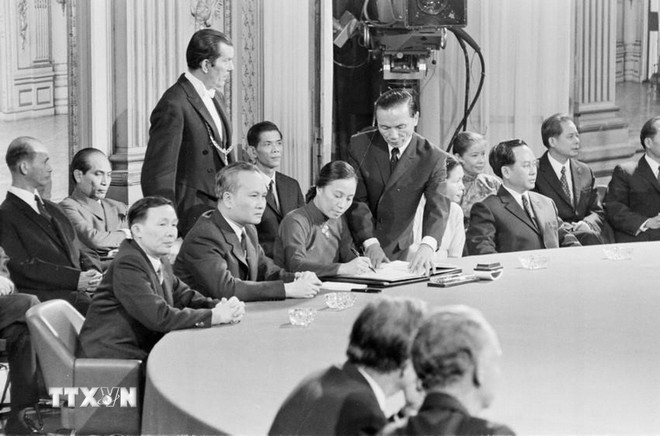
With tireless efforts, diplomacy has contributed to forming a fighting alliance with Laos and Cambodia; establishing relations with Thailand, Myanmar, Indonesia, India and especially promoting China, the Soviet Union and many socialist countries to recognize and establish official diplomatic relations with Vietnam.
These important steps opened up a large rear base for the front line, linked the Vietnamese revolution with the world revolution, and gained great support for our people's resistance. At the same time, diplomacy closely coordinated with the military, promoting great victories on the battlefield to intensify the struggle at the conference table.
After the Dien Bien Phu victory that “resounded throughout the five continents and shook the world”, France had to sign the 1954 Geneva Agreement on the cessation of war and the restoration of peace in Indochina. This victory abolished French rule, recognized the independence of the three countries of Vietnam, Laos, and Cambodia, and officially ended the colonial regime in Indochina; the North was completely liberated, and the Vietnamese revolution entered a new phase: Building socialism in the North, fighting to liberate the South, and unifying the country. The Geneva Agreement was a historical milestone marking the remarkable growth of Vietnamese diplomacy in the international arena. As Uncle Ho affirmed: “The Geneva Conference has ended. Our diplomacy has achieved great success.” ( President Ho Chi Minh’s appeal , Nhan Dan newspaper No. 208, July 25-27, 1954)
Having just gone through 9 years of extremely fierce resistance against the French, the whole nation had to enter the resistance war against American imperialism. Once again, history gave diplomacy the mission, along with other branches of the Vietnamese revolution, to fight and defeat an opponent many times stronger than us.
In the Outline report on the situation and tasks on the diplomatic front in May 1969, our Party determined that along with the military and political fronts, "diplomacy is an important front of strategic significance."
Diplomacy has mobilized great spiritual and material support and assistance from socialist countries and progressive peoples around the world, especially the Soviet Union, China, Laos, Cambodia, Cuba... At the same time, diplomacy has contributed to creating an unprecedentedly large international movement of solidarity and support for the just struggle of the Vietnamese people, promoting the anti-war movement right in the heart of the United States.
Together with our compatriots in the country, our overseas compatriots have promoted patriotism and participated in the resistance war in many forms. Many of them have volunteered to return home, contributing their knowledge and assets to save the country.
In the history of the 20th century, there have been few national struggles that have gathered such widespread and strong support both at home and abroad as the Vietnamese people.
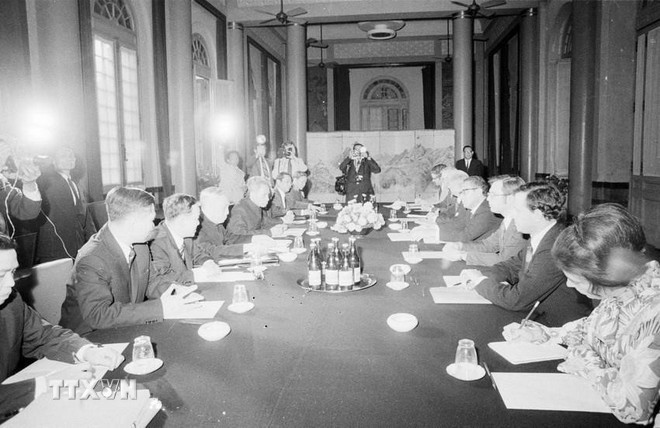
In the historic confrontation between a nation considered "weak" and the world's number 1 superpower, diplomacy coordinated smoothly and closely with the military and political fronts, opening up a situation of "both fighting and negotiating".
The art of "fighting and negotiating" has reached its peak, in which military and political struggles are the basis for diplomatic negotiations, and diplomatic struggles contribute to promoting military and political victories.
With our great victories on the battlefields, especially the victory of "Dien Bien Phu in the air" (December 1972), the US was forced to sign the Paris Agreement to end the war, restore peace in Vietnam, creating an important premise for our people to complete the struggle for national liberation and reunification in the spring of 1975.
During the period of national restoration and development after the war, diplomacy both participated in building and rebuilding the country and fought to protect the borders and territorial integrity of the Fatherland.
In the context of siege, economic embargo and political isolation, diplomatic efforts strengthened relations with countries belonging to the socialist system, fought to protect the northern border and maintain the southwestern border, helping the Cambodian people escape the disaster of genocide.
During this period, we also expanded foreign relations, becoming members of many multilateral organizations and forums such as the Non-Aligned Movement, the United Nations, etc.
With the motto "more friends, fewer enemies", diplomacy has taken the lead in gradually removing difficulties, clearing the foreign affairs situation, and laying the first foundations for expanding relations in the later stages of innovation and integration.
Diplomacy serving the cause of innovation and international integration
Entering the period of innovation, the first and foremost task of diplomacy at this time is to break the siege and embargo, restore and normalize relations with other countries.
In the spirit of innovative thinking, diplomacy has promptly adjusted and shifted its strategy, expanded relations with all countries in the world, implemented a policy of friendship, cooperation, and peaceful coexistence for development, regardless of political and social regimes.
With proactive steps, we have improved relations with Southeast Asian countries, restored friendly and neighborly relations with China, normalized relations with the US and developed Western countries, and joined the Association of Southeast Asian Nations (ASEAN).
In less than 10 years after the renovation, the foreign affairs situation has changed from confrontation to cooperation, from a situation of being surrounded and isolated to having friendly and stable relations with neighboring countries and major powers.
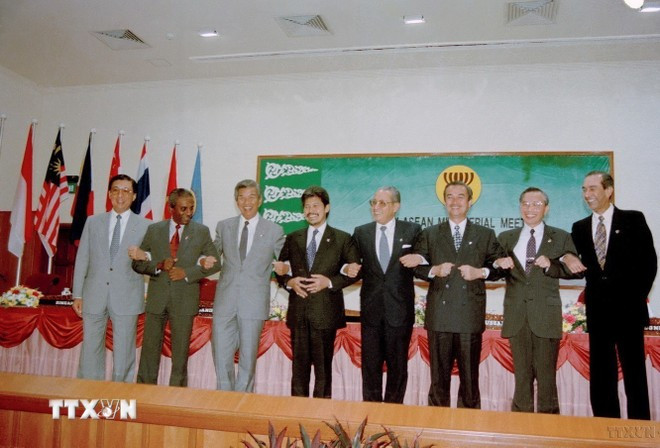
On the basis of the achievements in the initial stage of innovation and integration, diplomacy entered a new stage of expanding foreign relations with the policy of "being a friend, a reliable partner and a responsible member of the international community" and "multilateralizing and diversifying relations".
If before the renovation, we only had relations with more than 100 countries, by 2025 we had established official diplomatic relations with 194 countries.
Relations are increasingly deepening and becoming more sustainable, especially the formation of a relationship framework with 38 countries, including 13 comprehensive strategic partners, 10 strategic partners and 15 comprehensive partners.
After 40 years of renovation, we have created a more open and favorable foreign situation than ever before for the cause of national construction and development.
In the process of innovation and integration, diplomacy has closely coordinated with national defense and security to build a peaceful and friendly border belt with neighboring countries.
We have completed the demarcation and marker planting on the land border with Laos and China; achieved positive results in demarcation and marker planting with Cambodia; signed agreements and treaties on maritime demarcation with China (in the Gulf of Tonkin) and with Thailand, Indonesia, etc.
Regarding complex border and territorial issues, we resolutely fight against activities that violate sovereignty and territory, while at the same time holding high the flag of peace and cooperation, actively exchanging and negotiating with relevant countries to control disagreements, and seeking fundamental and long-term solutions to disputes by peaceful means on the basis of international law.
We have created a peaceful and friendly border belt and a cooperation mechanism to resolve border and territorial issues.
Along with that, Vietnam has gradually proactively integrated with the world, from economic integration to comprehensive and deep integration in all fields.
International integration and economic diplomacy have taken advantage of a favorable international environment, mobilized external resources, and transformed Vietnam from a besieged, embargoed, and underdeveloped economy into a strongly rising economy, an important link in the world economy.
From having economic and trade relations with only nearly 30 countries and territories, we now have economic and trade relations with more than 230 countries and territories; total import and export turnover reaching nearly 800 billion USD, joining the group of 20 countries with the largest trade scale in the world; attracting more than 500 billion USD in foreign direct investment (FDI), becoming the developing country attracting the leading foreign investment in the world.
Vietnam has become an important link in the world economy and is increasingly strengthening its position in the global production chain with 17 Free Trade Agreements (FTAs), including many new-generation FTAs, and more than 500 bilateral and multilateral agreements.
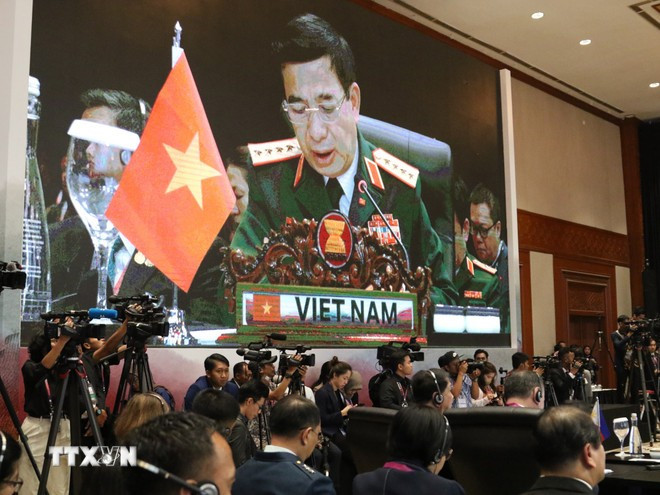
Diplomatic efforts have contributed to transforming Vietnam from a besieged and isolated country to an active and responsible member in more than 70 international and regional organizations, including all mechanisms that play a key role in global governance such as the United Nations, ASEAN, WTO, APEC, ASEM, etc.
Vietnam's multilateral diplomacy has increasingly matured, with important qualitative changes, from joining and participating in the early period, to proactively and actively contributing to common issues and now gradually leading and shaping many mechanisms.
Vietnam has initiated and is a founding member of many new cooperation mechanisms such as ASEM, ADMM+, CPTPP...; successfully assumed many important international responsibilities such as non-permanent member of the Security Council, member of the United Nations Human Rights Council, simultaneously participating in 6/7 important executive mechanisms of UNESCO; successfully hosted many major international conferences such as the ASEAN Summit, APEC, US-North Korea Summit; proposed new initiatives and documents, notably the United Nations Convention against Cybercrime (Hanoi Convention), and participated increasingly deeply in United Nations peacekeeping, humanitarian, search and rescue activities.
Vietnam's voice, initiatives and reasonable and emotional solutions have received the sympathy and support of the international community.
Foreign affairs fields are also increasingly expanding, contributing to consolidating national strength, serving socio-economic development and enhancing the country's position.
The Party and State always pay attention to and consider overseas Vietnamese as an inseparable part of the Vietnamese nation. The community of 6 million overseas Vietnamese is growing stronger and stronger, closely connected with the country, and making important contributions to the country's development.
Citizen protection work has actively protected the safety, legitimate rights and interests of Vietnamese citizens and businesses, especially in areas of natural disasters and war...
Cultural diplomacy has promoted national cultural values and mobilized new resources for development; UNESCO recognized 73 heritages and titles of Vietnam.
Foreign information strongly promotes the image of the country, people, culture, and innovation achievements of Vietnam with many creative contents and methods.
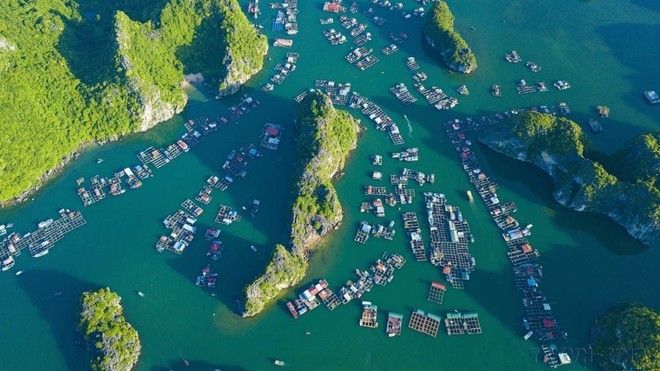
During the 80 years of construction and development, under the wise leadership of the Party and President Ho Chi Minh, Vietnamese diplomacy has fought bravely with the entire nation to gain independence, freedom for the country, and happiness for the people. From a poor, backward country devastated by war, Vietnam has now become a dynamically developing country, successfully integrating into the international community.
From a country that had no name on the world map, Vietnam has affirmed its role as a proactive, active and responsible member of the international community. As the 13th Party Congress and the late General Secretary Nguyen Phu Trong have stated: “Our country has never had such a foundation, position, potential and international prestige as it does today.”
In that challenging but also glorious journey, Vietnamese diplomacy is proud to always be present on the front line with the arms of the Vietnamese revolution, properly implementing the motto of "coordinated combat, collective achievements".
Comprehensive and modern diplomacy with three pillars of Party diplomacy, State diplomacy and people's diplomacy has created a combined strength that has brought Vietnamese diplomacy from one victory to another.
The growth and achievements of revolutionary diplomacy over the past 80 years are the crystallization of the tradition of peaceful diplomacy from the thousands of years of history of building and defending the country of our ancestors and Ho Chi Minh's diplomatic ideology; affirming the historical and cultural stature of the nation, reflecting the new position and strength of the country.
Vietnam's diplomacy is not only recognized by the Party, State and People, but also positively evaluated by international friends and partners. United Nations Secretary-General Antonio Guterres commented that Vietnam's diplomacy has shown that a country can overcome war, promote peace and become a pillar of multilateralism, a bright spot in international relations that other countries should learn from.
The Vietnamese diplomatic school is both principled and flexible, loves peace and justice and has contributed to enhancing the country's position and image in the international arena.
History lessons still hold true
The glorious 80-year history of revolutionary diplomacy has left many great lessons that remain valuable today.
First and foremost is the lesson of the Party's absolute and unified leadership and imbued with Ho Chi Minh's diplomatic ideology. The Communist Party of Vietnam is the organizer and leader of all victories of the Vietnamese revolution.
With its mettle, intelligence, prestige and capacity to lead the country, our Party has been sensitive to the situation, promptly changed its thinking, and was wise in making decisions to adjust foreign policies, guidelines and measures appropriate to each historical period.
From its earliest days, Vietnamese diplomacy was extremely proud to be guided and led by President Ho Chi Minh.
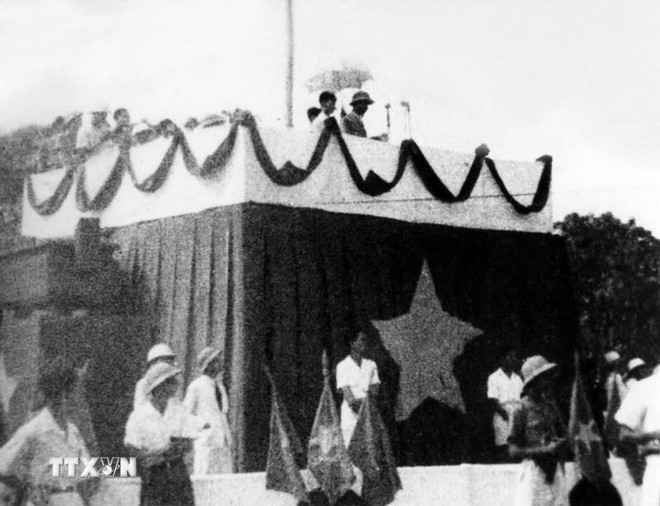
He is the architect of modern Vietnamese diplomacy and a great teacher of generations of diplomats. Ho Chi Minh's diplomatic ideology will always be the compass and the torch illuminating the path of Vietnamese foreign affairs.
That is a lesson about combining national strength with the strength of the times, between internal strength and external strength, in which internal strength is fundamental and long-term, and external strength is important and breakthrough.
We have strongly promoted the country's internal strength, at the same time linked it to the common cause of humanity, making full use of external strength to combine and supplement internal strength.
Over the past 80 years, although the world situation has changed rapidly and complicatedly, Vietnam's foreign policies and guidelines have always been adjusted appropriately to adapt to the situation and major trends of the times.
That is a lesson of independence, autonomy, self-reliance, and self-strengthening associated with cooperation, diversification, and multilateralization of foreign relations. Independence, autonomy, and self-reliance are prominent and consistent thoughts in the revolutionary line in general and foreign policy in particular.
President Ho Chi Minh affirmed: “Independence means we control all our work, without outside interference.” ( Ho Chi Minh: Complete Works, National Political Publishing House Truth, Hanoi, 2011, volume 5, page 162)
In that spirit, Vietnam is completely autonomous in setting out policies and strategies, taking independence and autonomy as the foundation to unite and gather forces to support and help Vietnam, but with reference to and selection of international experiences and lessons.
That is the lesson of "responding to all changes with the unchanging", "our principles must be firm, but our strategies must be flexible." ( Ho Chi Minh: Complete Works, National Political Publishing House Truth, Hanoi, 2011, volume 8, page 555)
The “invariable” is the independence, freedom of the nation, sovereignty and territorial integrity of the country, and the steadfast goal of building the country on the socialist path. The “variable” is the way to achieve the goal, flexible and adaptable in strategy depending on the problem, the time, the object, and the partner.
That is a lesson in valuing and properly handling relations with major countries and building and maintaining friendly and stable relations with neighboring countries.
Our Party clearly recognizes the importance of major countries in determining the world's order and trends, thereby building a balanced and harmonious relationship, both cooperating and struggling with major countries.
At the same time, we always maintain friendly, stable and long-term relations with neighboring countries, promoting our ancestors' tradition of "selling distant brothers to buy close neighbors" to have friendly and stable relations with neighboring countries, especially neighbors sharing borders.
Finally, the lesson is about personnel work, "the root of all work". President Ho Chi Minh and his predecessors are shining examples of patriotism, political courage, diplomatic skills and style that are admired by the people and respected by international friends.
Generations of diplomatic cadres who are politically steadfast, always absolutely loyal to the Party, to the interests of the nation, wholeheartedly serving the Fatherland and the people are the decisive factor in all diplomatic victories in the international arena.
Vietnamese diplomacy is proud to have had many great diplomats, excellent students of President Ho Chi Minh such as Pham Van Dong, Le Duc Tho, Nguyen Duy Trinh, Xuan Thuy, Nguyen Thi Binh, Nguyen Co Thach...
They are diplomats who have matured from revolutionary practice, affirming Vietnam's mettle and intelligence, making friends, partners and opponents all admire them.
Diplomacy in the era of national growth
The world is facing epochal turning points. Each turning point in history can be an opportunity or a challenge for countries depending on their preparedness and readiness.
The achievements of 80 years of fighting for national liberation, building and defending the Fatherland are a solid foundation for our nation to enter a new era, realizing the two strategic goals of 2030 and 2045 set forth by the 13th Party Congress.
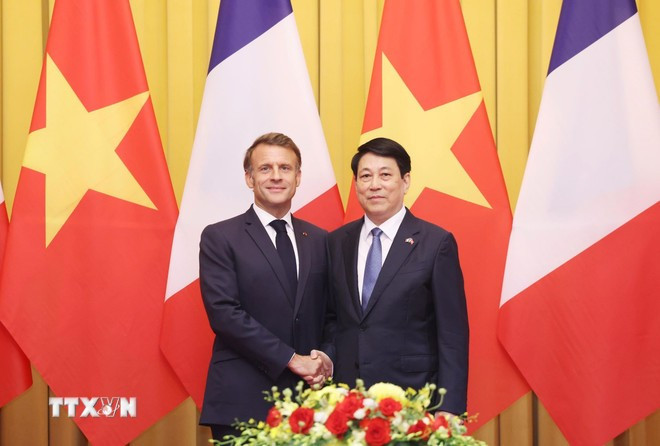
History has shown that geostrategic factors, the safety and prosperity of a country are closely linked to the external environment.
How to position and promote the country's position in the most beneficial way for the nation and people in the regional and world strategic chessboard is always a constant concern of Party and State leaders and those working in diplomacy.
During the most difficult years of the national liberation struggle, with courage, will, intelligence, and diplomacy, Vietnam overcame many difficulties and challenges and achieved resounding victories.
If in war, military victory created an important momentum for diplomatic victory; diplomacy is a "front" parallel to politics and military, then today, the baggage of Vietnamese diplomacy is the country's position and strength after 40 years of renovation, the solidarity and companionship of the whole nation.
In the context of international integration today, foreign affairs must play a pioneering role, performing well the "important, regular" tasks along with national defense and security to protect the Fatherland early and from afar, and to build and develop the country quickly and sustainably.
With this heavy but also glorious responsibility, diplomacy in the new era needs to focus on the following major orientations:
Firstly, always firmly uphold the national interests, and put the country in the right direction of the times. According to President Ho Chi Minh, diplomacy must always serve the interests of the nation. National interests are the “compass” of foreign policy, the unchanging goal of foreign affairs to respond to the rapidly changing, complex, and unpredictable situation in the world.
The highest interests are to firmly protect independence, sovereignty, unity and territorial integrity; to protect the Party, State, people and socialist regime; to maintain a peaceful, stable and favorable environment for national development; to protect the cause of innovation, industrialization and modernization; to protect political security, social order and safety and national culture.
However, ensuring the highest national interests must be based on equality, cooperation, mutual benefit, and joint efforts for peace, national independence, democracy, and social progress, based on the fundamental principles of the United Nations Charter and international law.
National interests are in harmony with the common interests of the international community, contributing to properly resolving the relationship between the nation and the times, both demonstrating Vietnam's responsibility and gaining international support.
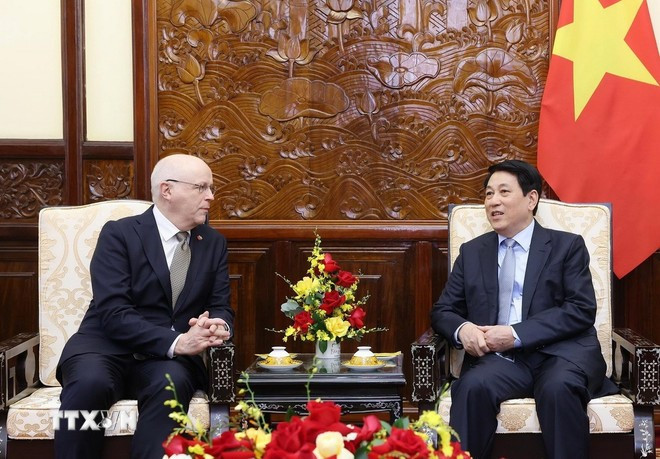
Second, continue to properly implement the foreign policy of independence, self-reliance, peace, cooperation and development; multilateralize and diversify relations; proactively and actively integrate into the international community in the renewal period.
“Independence, autonomy” and “multilateralization, diversification” have a dialectical and consistent relationship in Vietnam’s foreign policy. Independence and autonomy mean relying on one’s own strength and being self-reliant in setting one’s own policies and strategies.
The recent changes in many regions of the world have further affirmed the correctness of Vietnam's "independence and self-reliance" policy. In addition, the major issues facing the world such as natural disasters, epidemics, climate change, cyber security, etc. also show the benefits of "multilateralization and diversification" of foreign relations, because no country, no matter how powerful, cannot cope with the current multidimensional challenges on its own.
Internal strength is the main resource, the root of national strength, but it is necessary to take advantage of all external resources to increase internal strength, to best ensure national security and development.
Third, make international integration a driving force, create momentum and seize new development opportunities for the country.
Diplomacy for development is the focus, taking the lead in connecting internal and external forces; identifying and seizing opportunities from new trends in the world in science and technology, innovation, renewable energy development, strategic infrastructure, digital transformation, green transformation, etc.
At the same time, diplomacy must open up cooperation with leading partners, especially high-quality resources in finance, technology, and management, to create new momentum, new breakthroughs, and new achievements for national development.
With the advantage of an open foreign affairs situation, diplomacy needs to take advantage of good foreign relations to promote economic agreements; clear up obstacles, and maximize the benefits of trade and investment agreements for people, localities, and businesses.
Fourth, promote the combined strength in all areas of foreign affairs. The new era also requires a new approach to foreign affairs, from receiving to contributing, from learning to leading, from economic integration to comprehensive and deep integration, from a country following behind to a pioneering country, ready to take on new responsibilities.
The new situation and power not only create conditions for us to participate more and contribute more actively to solving common problems, but also allow us to promote our core and leading role in important issues and mechanisms of strategic significance, in line with the country's interests.
The new situation and power also require us to promote the nation's "soft power", commensurate with the country's historical and cultural stature, political and economic position.
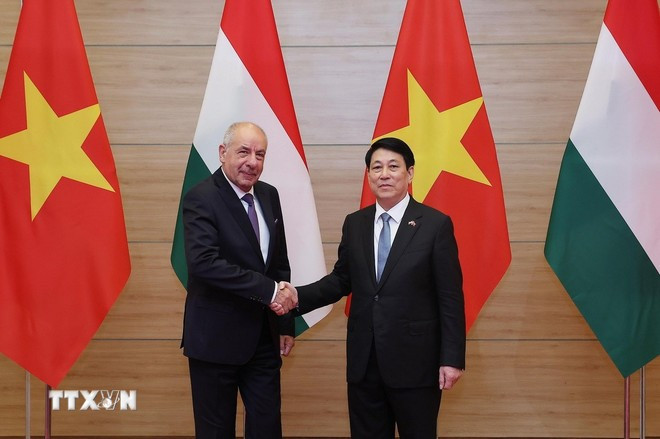
Fifth, build a strong diplomatic sector worthy of previous generations and worthy of the new era.
During the difficult years of the revolution, we always had excellent diplomats, people who became shining examples of patriotism, self-learning spirit, political courage, diplomatic style and art, recognized and respected by international friends.
The new era requires the building of a comprehensive, modern, and professional diplomacy that meets new requirements, imbued with and creatively applying Ho Chi Minh's diplomatic ideology.
In the new era, foreign affairs officials must be pioneers who dare to think, dare to do, dare to innovate, dare to face difficulties, and act for the national interest.
Looking back at the past 80 years, generations of diplomats have the right to be proud of the tradition, history and glorious achievements of Vietnamese diplomacy, contributing to the glory of the country.
The mettle and intelligence of modern Vietnamese diplomacy have been forged through thousands of years of the nation's history, tempered and matured under the Ho Chi Minh era.
In the new era, following in the footsteps of their fathers' heroic tradition, today's generation of diplomats will continue to write golden pages of modern Vietnamese diplomacy, contributing worthily to the journey of bringing the country to "stand shoulder to shoulder with the world powers" as Uncle Ho always wished./.
Luong Cuong, Politburo member, President of the Socialist Republic of Vietnam
(According to VNA/Vietnam+)
Source: https://baogialai.com.vn/ngoai-giao-viet-nam-80-nam-xay-dung-truong-thanh-cung-dat-nuoc-post564599.html


![[Photo] Solemn opening of the 1st Government Party Congress](https://vphoto.vietnam.vn/thumb/1200x675/vietnam/resource/IMAGE/2025/10/13/1760337945186_ndo_br_img-0787-jpg.webp)





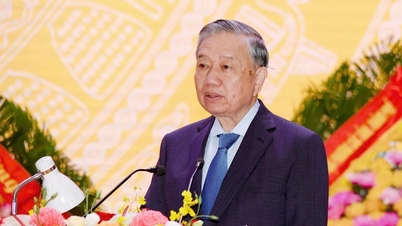

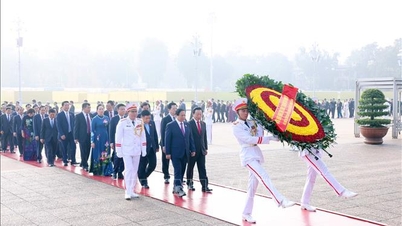

![[Photo] General Secretary To Lam visits Kieng Sang Kindergarten and the classroom named after Uncle Ho](https://vphoto.vietnam.vn/thumb/402x226/vietnam/resource/IMAGE/2025/10/09/1760023999336_vna-potal-tong-bi-thu-to-lam-tham-truong-mau-giao-kieng-sang-va-lop-hoc-mang-ten-bac-ho-8328675-277-jpg.webp)

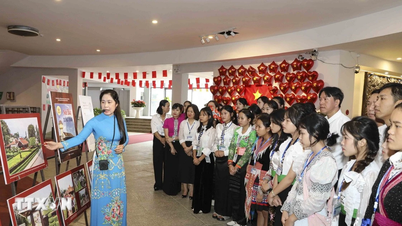

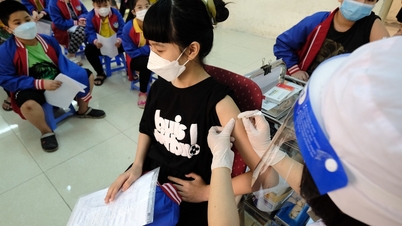

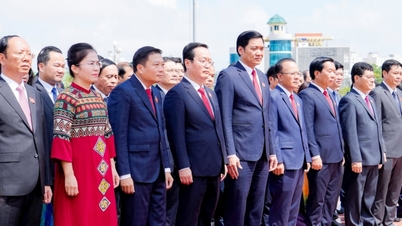

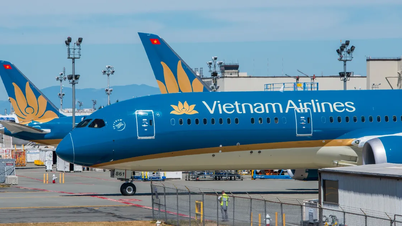

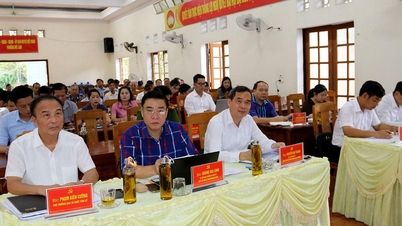

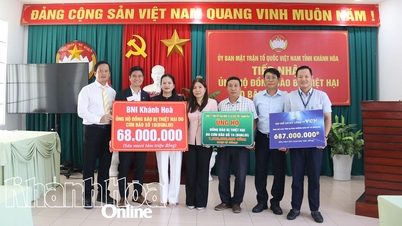

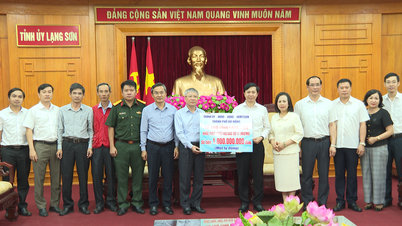

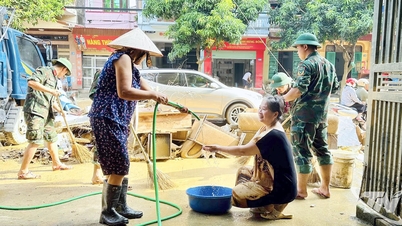

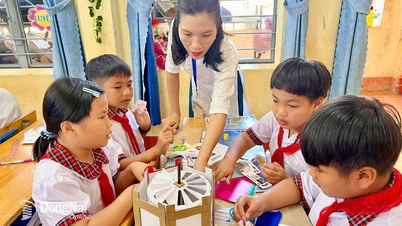





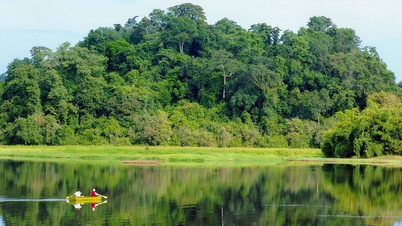
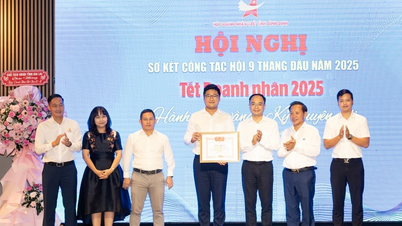
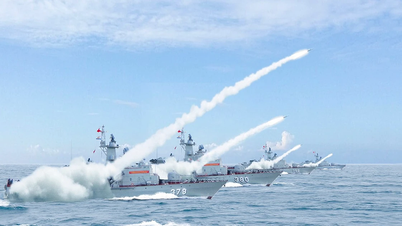
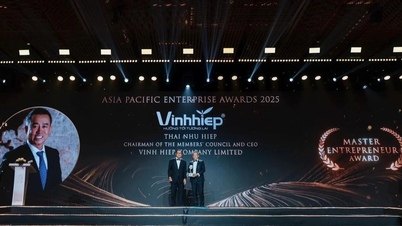
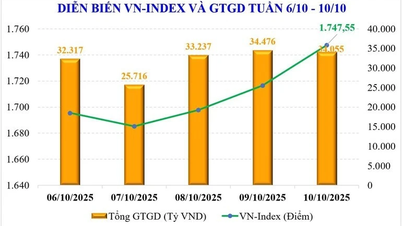
























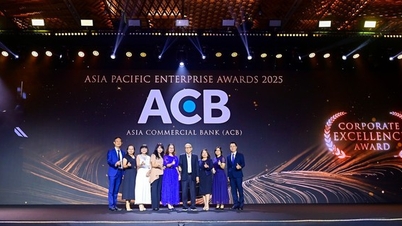
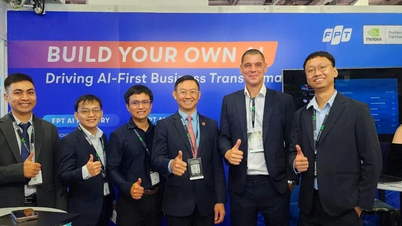






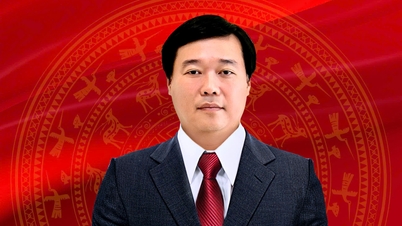
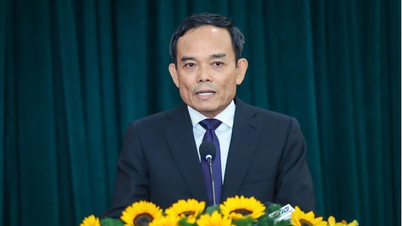


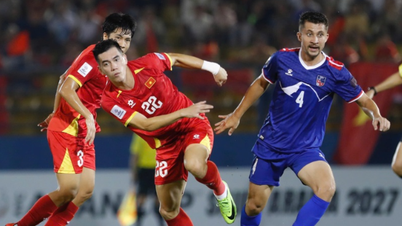

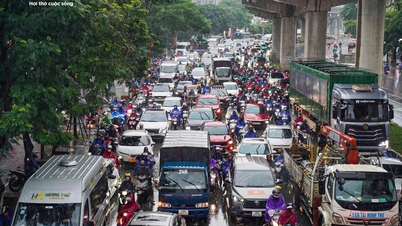
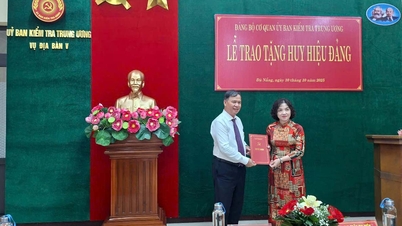

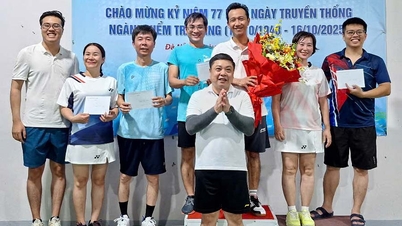
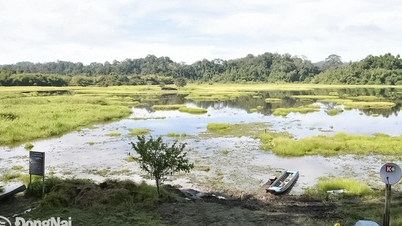

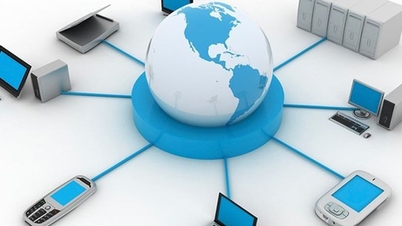


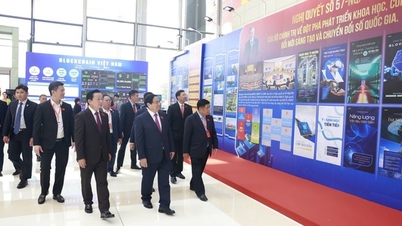

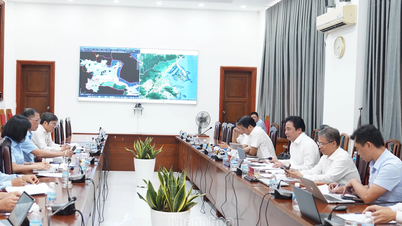
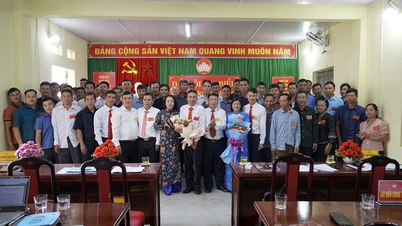
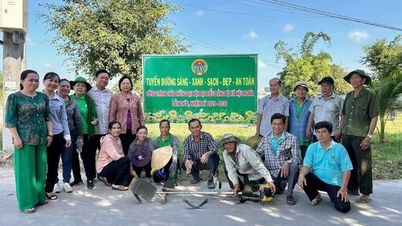















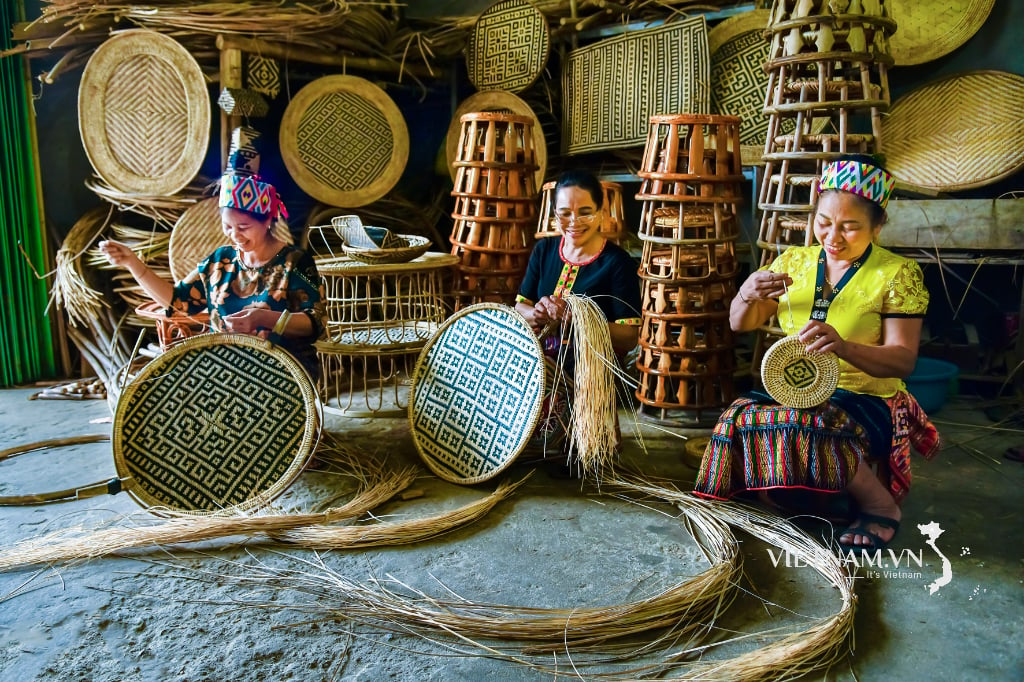
Comment (0)